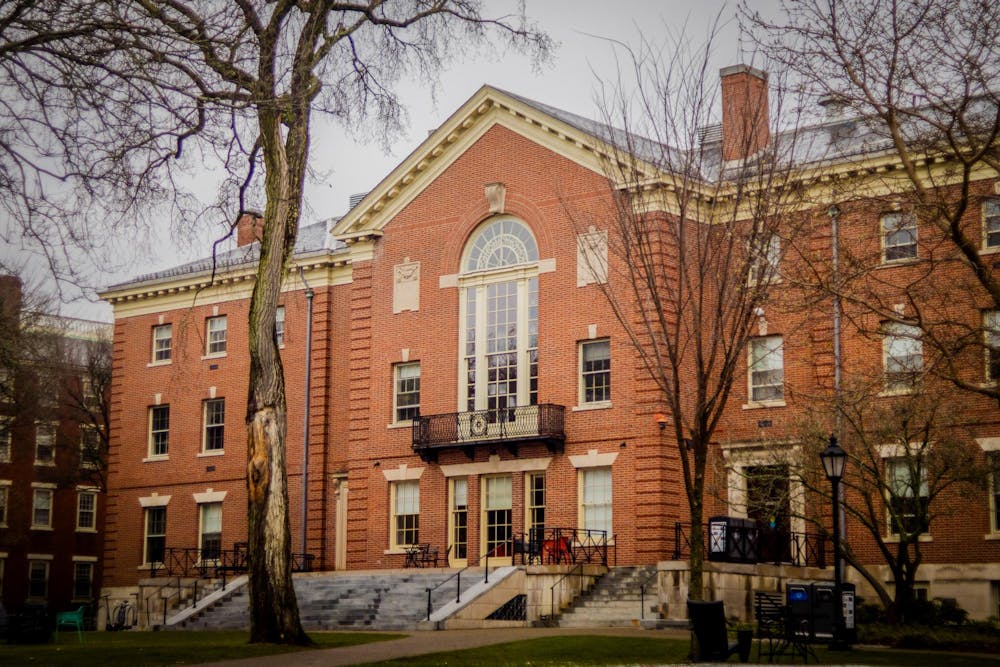The University invited students to voice their opinions on legacy admissions in a Zoom forum Tuesday evening.
All eight students who spoke at the forum expressed opposition to legacy admissions, citing concerns about nepotism and equity, as well as racial, socioeconomic and geographic diversity.
Provost Francis Doyle wrote in an email to The Herald that the University “hosted a similar forum for faculty and staff last week.” Between both forums, they expected approximately 125 attendees, Doyle added.
Tuesday’s forum was led by Doyle and members of the Ad Hoc Committee on Admissions Policies, which was created to examine the University’s admissions protocols following the Supreme Court’s 2023 decision to outlaw race-based affirmative action in college admissions.
Last spring, the committee determined that further consideration was needed before making a recommendation regarding preferential admissions for students with familial connections. Brown offers legacy preference to students with at least one parent who obtained an undergraduate degree from the University.
A poll conducted by The Herald last fall found that nearly three in five students opposed legacy admissions.
While the event was characterized as a listening session in public communications, Nick Lee ’26, Students for Educational Equity co-president, said that there were points where it felt like committee members were “trying to argue against us.”
On several occasions, committee members interrupted students’ comments with follow-up questions or remarks. “At one point, I was cut off. I know other students were cut off in the middle of speaking,” Lee said. “If it’s a listening session, we shouldn’t feel like we’re trying to fight.”
Doyle did not respond to a request for comment about the committee members’ interactions with the student attendees.
Multiple committee members declined to comment on the forum.
While Lee appreciated the opportunity to voice his perspectives, he felt the forum should have been “advertised more readily with more advanced notice.” Doyle wrote to The Herald that the event was advertised through one priority message in Today@Brown.
In comments during the forum, Isaac Slevin ’25 identified himself as a legacy student and said that because of his “parents’ financial status, social status and connections,” he would have been successful wherever he attended college and did not need preferential treatment in admissions.
“I recognize that I benefited from legacy admissions, that I might not be here without it,” Slevin said. But the potential of rejecting individual applicants “is a very small social cost to pay” to make Brown more “equitable,” he added.
Anaya Kaul ’25, the co-lead of SEE’s Admissions and Access committee, described legacy admissions as “affirmative action for the white and wealthy.” Several participants referenced data showing that familial preferences in admissions at institutions across the country disproportionately benefit rich, white individuals.
Kaul said that achieving the University’s goal of diversity is impossible in “an admissions system that systematically keeps out students who would most contribute to this diversity.”
The committee’s March 2024 report acknowledged that “removing legacy preferences could lead to somewhat more diversity in the group of admitted students,” but wrote that the effect would be “modest.”
During the forum, committee members also said that Brown’s alumni population is slowly increasing in diversity, meaning that legacy admissions could benefit some students of color whose parents attended Brown. Eliana Rivas Marte ’27 said that did not remedy her concerns about familial preferences.
“At least to me as a Black student, as a first-generation student, it (would feel) like I’m still benefiting from something that is unfair because I would be taking away the spot for another Black student that was not a legacy,” she said.
Lee said he doesn’t believe that legacy admissions are the best strategy to promote diversity. “There are so many other diverse identities that could and should be considered” during the admissions process, he noted.
“I don’t think that my blood relationship to any school should be part of that consideration when they have so many other factors that are more meaningful,” Lee added.
Jay Philbrick ’25 brought up issues of socioeconomic and geographic diversity when expressing his opposition to legacy admissions.
Addressing the argument that legacy admissions cultivate a sense of school loyalty — which was acknowledged in the committee’s report last spring — Philbrick said that he wanted to expand the community of Brown alumni to include more diverse families across different geographic and socioeconomic statuses.
Even if eliminating legacy preferences at the University would not have a substantial impact on campus diversity, Philbrick emphasized that the influence of such a decision would have impacts beyond Brown.
“Brown is a role model” for other schools, he said. If the University decides to get rid of legacy admissions, other schools will likely follow, he added.
Doyle said that input from students and community members “will be one important consideration in informing the development of a recommendation on whether to sustain family preferences in Brown’s admissions processes.”

Teddy Fisher is a senior staff writer who studies International and Public Affairs and is passionate about law, national security and sports. He enjoys playing basketball, running and reading in his free time.

Ciara Meyer is a section editor from Saratoga Springs, New York. She plans on concentrating in Statistics and English Nonfiction. In her free time, she loves scrapbooking and building lego flowers.





